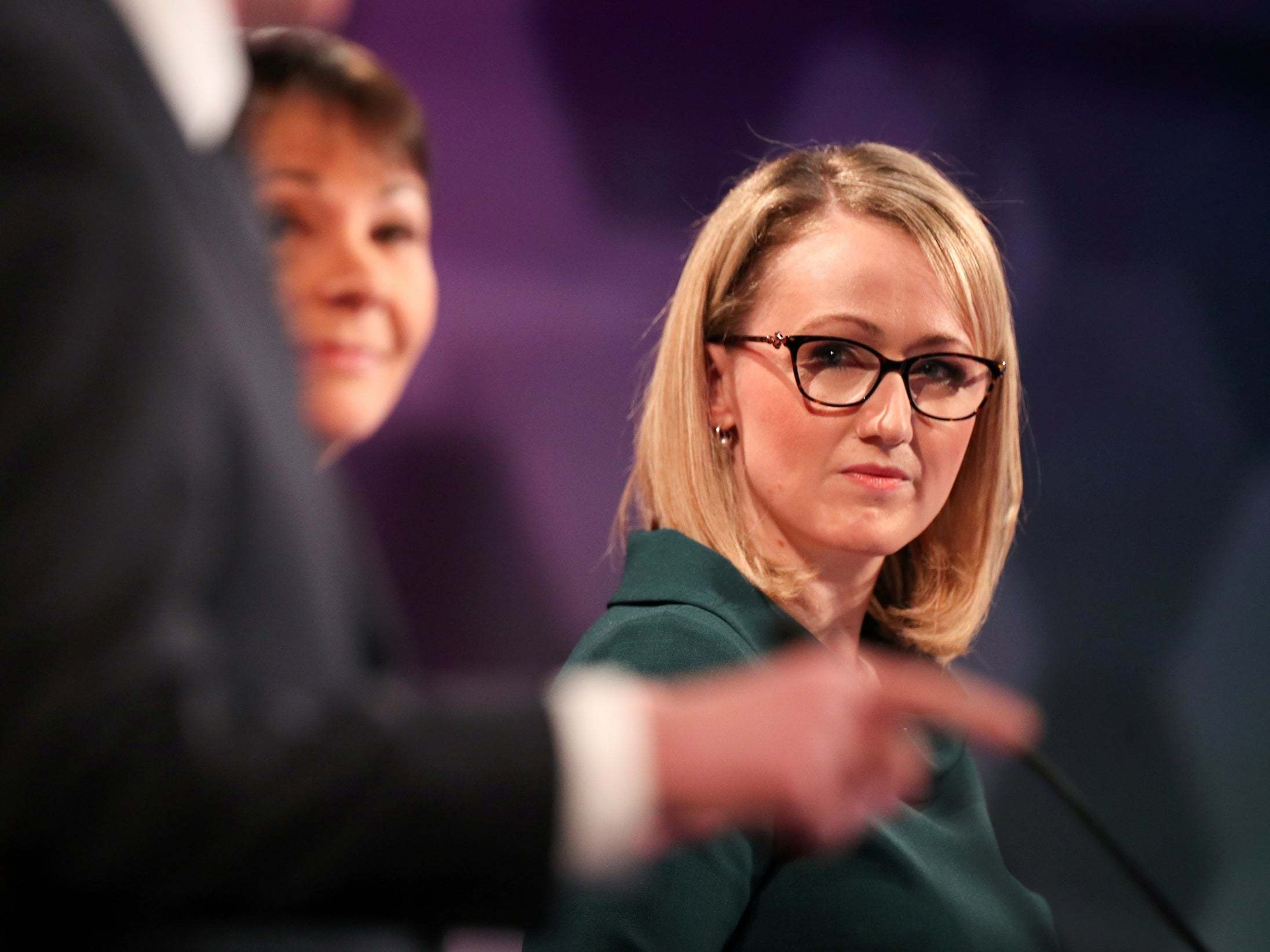I have seen the future of British politics: Long-Bailey vs Sunak
Rebecca Long-Bailey was a little more prime ministerial than Rishi Sunak in the ‘future leaders’ TV debate

The BBC’s idea was an interesting one. To stage a mock Prime Minister’s Questions of the future, featuring the possible next leaders of the Conservative and Labour parties. The format was a little confusing, because the BBC, having to be impartial, couldn’t cast either Rebecca Long-Bailey or Rishi Sunak as the prime minister, so it had to go for a many-sided debate in which the two principals were treated equally – and their clash was complicated by side attacks from unexpected directions from the minor parties.
Long-Bailey and Sunak had been chosen by their leaders to go into battle on their behalf: there could be no stronger indication of their favoured status as possible successors. She is only shadow trade secretary, and he the most junior member of the cabinet as chief secretary to the Treasury, but they both bore the Mark of Approval from On High.
Long-Bailey started off sounding most prime ministerial. She devoted half her opening remarks to the terrible news of the killings on London Bridge, on which she spoke well, before turning to the “big choice” facing the country in the election.
Sunak, on the other hand, was respectful enough but a little too quick to get on to his election message, which was, predictably, “get Brexit done”. There was an unfortunate echo, possibly heard only by me, of Tony Blair after the Iraq war, in his plea: “We all want to move on.”
Then the roles reversed. Long-Bailey was an impressive leader of the opposition. She attacked Sunak’s boss, Sajid Javid, for having worked for Deutsche Bank, selling the very derivatives that caused the financial crash, and said the Conservative Party’s “direction of travel” was towards selling off the NHS.
Sunak, sounding like a heavily scripted prime minister, called this a “desperate conspiracy theory” and asked how much Labour’s four-day week was going to cost the NHS.
Then came the questions from the backbenches. Adam Price, the Welsh nationalist, sounded like a Tory, attacking Long-Bailey for the state of the NHS in Wales. Richard Tice for the Brexit Party – it was a bold plot twist by the BBC to posit an MP for Nigel Farage’s party in the House of Commons of the future – heckled her for a “cop out, failure of leadership” when she said she would wait to see what Labour’s Brexit deal was like before deciding how to vote in a second referendum.
Jo Swinson made a reasonable fist of her third-party role. She doesn’t often get a chance to speak at PMQs, so she has to make it count. In this preview of PMQs in the future, she had the best line – that the Brexit story so far was nowhere near finished: “It’s episode one of a 10-season box set, and if you don’t like what you’ve seen you don’t have to watch the rest.”
Sunak referred to his seven-year-old daughter to try to sound sincere on the environment, and to his GP and pharmacist parents to sound as if he cared about the NHS, but he still sounded like a satnav reading out a Tory press release.
Long-Bailey was more surprising. She told Sunak off for not understanding the difference between current and capital spending. She said she “would need to take action if necessary”, when asked if she would ever press the nuclear button. And when Nick Robinson, the presenter, asked if she could name any subject other than Brexit on which Jeremy Corbyn had been neutral, she said, “Not off the top of my head, no.”
She retreated to the safety of a memorised 30-second closing statement at the end, which included the phrase the “Green Industrial Revolution”. For some reason, the Labour leadership has decided that this is a better slogan than the Democrats’ “Green New Deal” in the US. They are wrong about that.
But taking the future leaders’ debate as a whole, I think Long-Bailey came out just ahead of Sunak.
Join our commenting forum
Join thought-provoking conversations, follow other Independent readers and see their replies
Comments